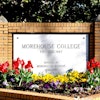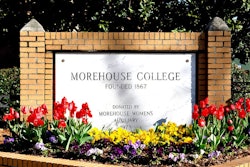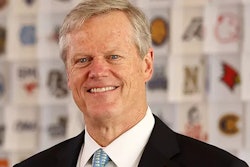Legalized betting on college sports took center stage on the second day of the Sports Business Journal Intercollegiate Athletic Forum (IAF) Thursday in Las Vegas, with panels focusing on the opportunities and threats for schools from gambling and its effect on the mental health of athletes.
Gambling on college sports has exploded since the Supreme Court ruled that states could legalize it in 2018. Since then, legal sports betting has started in 31 states, with five more soon to join them. Over $25 billion has been bet legally at U.S. sportsbooks, with $8.5 billion wagered on college football and basketball in the past 12 months. According to the New York Times, at least eight universities so far have made deals with online sportsbooks, some worth over $1 million a year, and at least 12 athletic or booster clubs have partnerships with casinos. The IAF’s lead sponsor this year is Learfield, a marketing company which has brokered deals between colleges and sports betting operators.
 Solly Fulp, executive vice president of business development at Learfield
Solly Fulp, executive vice president of business development at Learfield
Erika Barnes, executive senior associate athletic director and senior woman administrator at the University of Arizona, compared legal betting to the university’s introduction of beer sales during sporting events. There is the potential for problems, but if tested carefully and phased in slowly, it can work.
The panelists also agreed broadly that gambling operations would eventually become embedded in college athletics facilities like stadiums.
“Will it happen?” said Brian Clayton, senior director of sales, Americas, at IMG Arena, which provides data for sportsbook operators. “I would put—" He stopped himself before saying “money on it.”
 Matthew Holt, president and founder of U.S. Integrity
Matthew Holt, president and founder of U.S. Integrity














